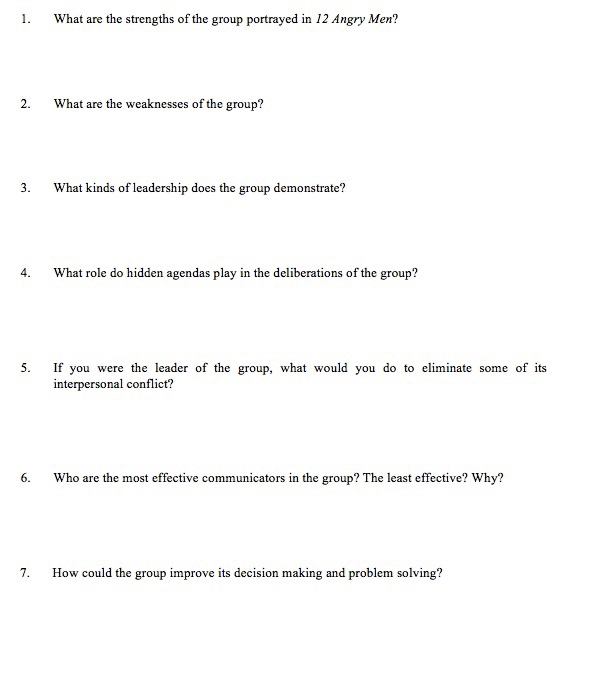12 men and a prayer? It is a dramatic work by author Reginald Rose. Initially, the script was written for television, but was later adapted to be brought to film and theater.
Reginald Rose was born in the Etts-Unis and devoted her life to writing scripts, especially for television, in the 1950s, her arguments reflect an interest in highly controversial social and political issues, with a clear and precise approach to collective reality.
- His best known and most successful work is “12 men and a sentence”.
- In which he recounts the complexity of the human being in discriminating feelings and realities with the difficulty of being minimally objective.
- The television series premiered in 1954.
- Then the author adapted it to take it to the theater with great public success.
- And in 1957 the film was finally shot.
- Directed by Sidney Lumet.
- This film is one of the best representing the communion between television.
- Theatre and film.
The common thread of the complex plot consists of a jury of 12 very different men who must agree whether they find the accused guilty or not guilty, the charge is murder and what they decide will have important consequences.
Before the twelve jurors, a magistrate dismissed the trial of an 18-year-old for committing his father’s murder offence and asked them to stand down to rule on the verdict; if the defendant is eventually convicted, his conviction will be to be sent to the electric chair on the charge of first-degree murder.
When it seems that they will soon rule on a guilty verdict, one is not so sure and maintains what he calls a “reasonable doubt” that he should reconsider the charges. . The person who opposes the majority’s thinking will present their case and ask for a new vote to see if anyone has thought about it. Vote by vote, doubts, previously masked by apparent clarity, will begin to arise.
The group then decides to reconsider their decision and review the case more slowly, discuss the evidence presented, witness statements and draw new conclusions, during this deliberation these 12 men expose their fears, recount their experiences, expose their personalities. and show the prejudices that lead them to support their different views.
This is perhaps the most magical thing about the film, the mirror that puts us before us to tell us that, under many opinions or beliefs that we sustain and defend, there are reasons that we dare not admit, even in a context where there is a defendant that we do not know.
A reasonable doubt arises when all jurors want to resolve the decision hastily, reaching a consensus of guilt. In a quick and uncompromising first ballot, all but one of the jurors found the defendant guilty of the crime.
It was then that the dissenting member’s leadership skills attracted other members of the group who gradually doubted the guilt of the accused young man. This character who turns on the fuse reflects in his interpretation the characteristics that define a good leader:
Throughout the film, the protagonist listens carefully to each opinion, without falling into the temptation to interrupt the speech of the rest of the jurors, just listening allows to gather information and identify problems, make decisions and resolve conflicts.
This allows your teammates to feel important and integrated into the jury, making it easier for them to participate, gradually leave the comfortable stance of thoughtless belief, and participate in the debate.
Jurors want to solve the problem as quickly as possible. However, at the top of it, our character expresses his disagreement. It’s not a simple position against most. He declares, for example, that the defendant’s trial cannot be transformed into a trial of his own person.
Similarly, a leader expresses his real opinion, above the inertia of the social current, is aware of his responsibility and assumes it, even if he puts him in an uncomfortable position, in addition, a good leader is able to remember those who follow him the consequences of decisions as a group.
The main character facilitates discussions among jurors, or manages and resolves conflicts and ensures smooth and effective communication. A person who wants to convince with arguments has a good mirror in the film for inspiration, above which his authority comes from other sources. , as greater prestige or experience.
Our leader in the film is not positioned closed. In the first vote, vote for him? Innocent? Because you want the debate to be open, not because he wants to position himself there. It’s more of the circumstances that make you choose. He is aware that if he does not speak out against the majority position, there will be no debate.
In that sense, he is honest in office, does not close, but expresses doubts. What he does not know, that is why he wants to hear the arguments of people who have an opinion, this is how he gets the involvement of others, something very complicated if he had sought direct confrontation, the sincerity of the leader is his best tool to solve doubts or conflicts generated between the participants in the opinion of the verdict.
During?12 men and a phrase we see how the leader identifies the opportunity to provide new evidence by questioning the rest of the group. With great analytical power and presence of people, try to give a new vision of the facts.
It is undeniable that, given the reasonable doubt that arises throughout the plot, any verdict must always be a verdict of innocence, but it is difficult to discern between the probable and the possible, leaving the viewer free to think what he deems appropriate.

